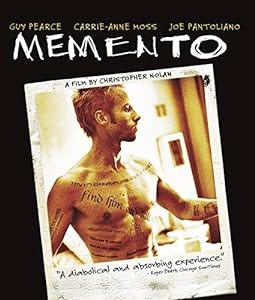I've discussed a lot about the role strategy plays in career decisions (e.g. calculated bets parts I, II, and III). Strategic thinking has served me well at different stages of my career. But while strategy is superior to action in a number of ways, action trumps strategy for two reasons:
The future is unknowable.
You learn about yourself through your actions.
The future is unknowable
The pandemic and rising interest rates have had unpredictable outcomes. You can strategize all you want, but unless you're testing new ideas, you won't be able to benefit from asymmetric bets.
When I made my lateral move as a biglaw associate, I joined one of the strongest life science patent litigation practices. It was one of the best practices at generic-side pharmaceutical patent litigation. And it was making headway into a new frontier of drug patent disputes for biosimilar drugs.
Seemed like the perfect move. Except when I lateraled over, its biggest client was reeling from digesting a huge acquisition, a swath of lower-cost generic companies flooded the market, and the biosimilar market was throttled by arguably anticompetitive behavior from the brand drug companies.
But over time, I came to appreciate that the only career assets that are impervious to changing market conditions are an audience and a network. Both only get stronger the more you feed them. So rather than bet on my own ability to thrive in unknowable market conditions, I depend on my network's ability to thrive. It's the ultimate asymmetric bet: the house always wins.
You learn about yourself through your actions
You don't know what you're particularly good at until you've tinkered, a lot. That's the key insight in applying the Monty Hall problem to your career.
So if you both tinker and you change roles, you get clarity on what you're good at. I recently realized that how I got my first job after college at Harvard revealed a lot about my skillset. I loved psychology research - I'd be in the library on Saturday nights reading journals. I was connecting the dots between researchers - seeing who had influenced whom, and where the disagreements were.
So when I wanted to work as a researcher, I didn't look for a job posting. I started emailing the researchers I admired. I emailed a summary of the research I found interesting, and suggestions for future studies.
That approach paid off. I cobbled together a role for just the summer at Princeton, and then a full-time role split between two labs at Harvard. These weren't posted roles - they were created because I reached out.
That's essentially my approach as a patent litigator turned legal recruiter - developing expertise in knowing similarities and differences in practices and building relationships with decision-makers who can create roles.
You won't know in advance what skills will become your edge. It's something you discover over time and experimentation. And quantity leads to quality.
Question for you
I'm writing an article for Vault Law about personal finance for biglaw associates. What should I cover?
Here are some personal finance topics I've previously covered:
- How your career decisions depend on your financial decisions
- Passive vs. active investing
- Real estate (long-term rentals, short-term rentals)
- Growing income vs. managing expenses
- Pros and cons of a side business
I posed this question on LinkedIn and the responses are very interesting.
Khurram’s List
I run Freshwater Counsel, a recruiting agency. To discuss a move you’re considering or a hire you’d like to make, contact me.
Law Firm
I’m working with an elite trial firm on a unique role. They have a busy docket with complex commercial litigation and are looking for a litigator from a top firm who wants to be an expert on all things discovery. This is a great fit for a detail-driven lawyer focused on operations. Market comp. NY or LA.
I’m working on an unlisted search for an AmLaw 50 firm. The patent litigation practice is growing rapidly servicing large-cap tech companies. The firm is looking for two 3rd-year associates, two 6th-year associates, and an 8th-year associate. This is a unique opportunity to grow a patent practice at a prestige brand.
I’m working with my former firm Goodwin on these key searches:
Life Science Corporate Midlevel Associate: join a Band 1 practice and work on the highest-stakes life science transactions.
IP Litigation Associate: represent growing tech companies in bet-the-company disputes - trade secrets, patent, and more.
Employment Midlevel Associate: represent growing and large-cap tech and life sciences companies in high-stakes disputes and compliance matters.
Moving from biglaw to an elite litigation boutique? Let’s discuss these clients that are hiring.




